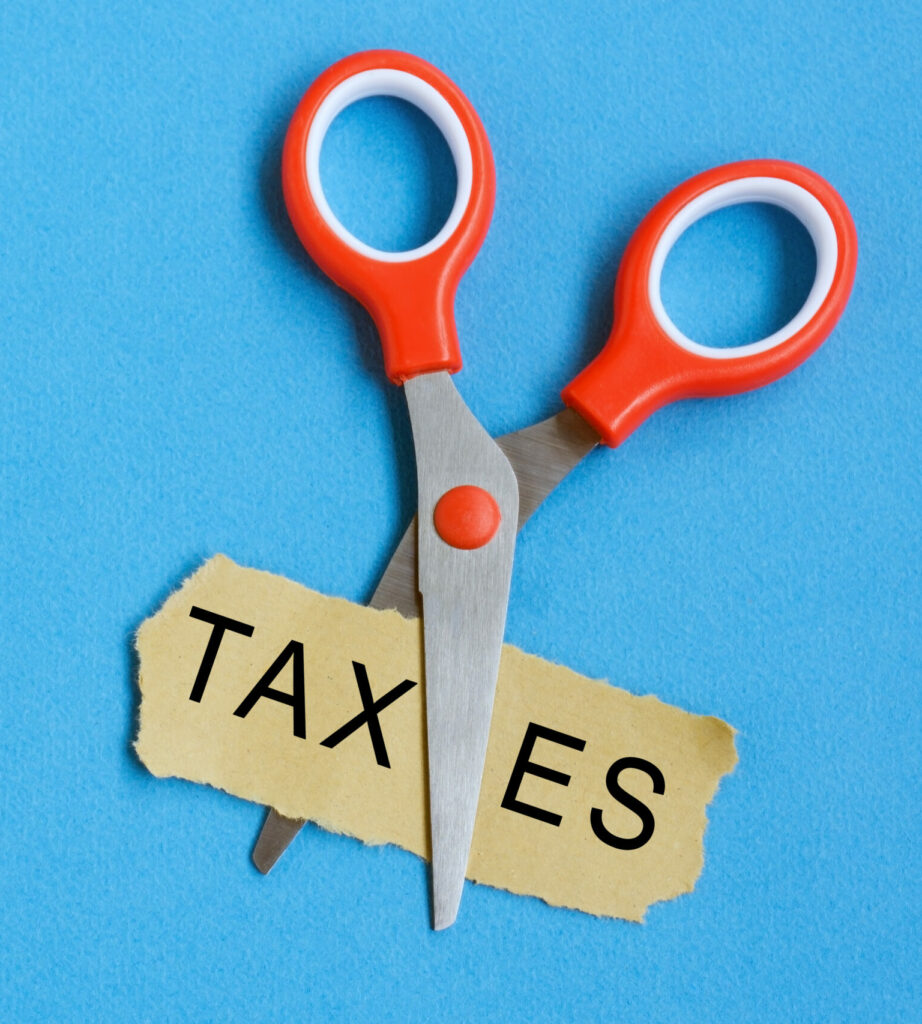Crypto Taxes in the Netherlands: The Complete Guide
Crypto taxes in the Netherlands is unlike any other country –
In the Netherlands, you pay a 31% income tax rate on the presumed gains of your crypto.
The tax structure in the Netherlands, especially its method to calculate capital gains, can come off as a little problematic to many, and there have been disputes regarding it as well, which we’ll briefly touch upon.
But whether it’s fair or not is beyond the scope of this guide. We’re here to explain how it works and prepare you for your crypto taxes.
Table of contents
How Does the Dutch Tax and Customs Administration View Cryptocurrency?
The Dutch Tax and Customs Administration or Belastingdienst views crypto as an asset for tax purposes and assets are treated quite differently in the Netherlands than in other countries.
How is Crypto Taxed in the Netherlands?

Unlike other countries, the Netherlands doesn’t tax you on your realized capital gains incurred from selling or disposing of your crypto. Instead, the Belastingdienst states that you’ll be subject to a 31% income tax rate on your fictitious returns.
If you’re wondering, fictitious return is just another word for presumed returns. What it means is that the Belastingdienst assumes you’ll always make a profit and never incur any losses. Not only that, but they also assume how much you’ll make based on different brackets.
This is where you might think crypto taxes in the Netherlands are unfair, and a high court ruling late last year would agree with that, as it stated that the fictitious gains tax system is a human rights violation.
After the high court ruling, it has been confirmed that a new tax system would come into effect starting in 2025 that will tax individuals based on the realized gains of an asset instead of presumed gains.
But until then, you must know how the existing tax system works to file your tax return when the next tax season comes.
The Belastingdienst has outlined three categories for different income sources. They are –
- Box 1 is for income from employment.
- Box 2 is for income or gains from substantial interest.
- Box 3 is for income or gains from assets, further dividing them into savings and investments.
Wondering where cryptocurrency falls into?
Box 1 and Box 3.
Crypto as Income
Box 1 is pretty simple. It’s when you receive income in the form of crypto. Some examples of crypto as income are getting paid in crypto, crypto mining rewards, day trading, etc.
You’ll pay a 31% income tax rate on the fair market value (FMV) of the crypto at the time of receiving it.
Crypto as an Asset
When you’re holding crypto long enough for it to not qualify as trading, it will come under Box 3, and according to the Belastingdienst, you must pay a 31% income tax rate on the fictitious gains (0% to 5.69%) of your assets that falls under Box 3.
| Value of Assets | Savings (Fictitious Gain of 0.03%) | Investments (Fictitious Gain of 5.69%) | Average Fictitious Gain Percentage |
| up to €50,001 | 67% | 33% | 1.898% |
| €50,001 to €950,001 | 21% | 79% | 4.501% |
| Above €950,001 | 0% | 100% | 5.69% |
If you only want to know what taxes you owe to the Belastingdienst, the average fictitious gain percentage is all you have to care for. As mentioned, you’ll pay a 31% income tax rate on the average fictitious gain percentage.
Here’s an example –
How much will you pay in taxes if you hold crypto worth around €150,000?
Firstly, the first €50,000 in assets are tax-free as part of a tax-break provided by the Netherlands government. So, we’re left with €100,000.
According to the table above, you’ll fall under the second bracket and will incur a fictitious gain of 4.501%.
4.501% of €100,000 is €4501, meaning you’ll pay a 31% income tax rate on €4501.
As you might have noticed, there are two other columns in the table. Let’s find out what they are and break down the different components of how the Belastingdienst taxes assets.
Savings and Investments – The Belastingdienst assumes that you’ll always allocate some portion of your assets towards investments and some towards savings.
As you can see, the ratio of savings to investments changes based on the total value of the held assets. For example, in bracket 1, it’s assumed that you’ll save 67% of your assets and invest 33% of them. At assets valued at or above €950,001, the Belastingdienst assumes you’ll invest all of it and save nothing.
The average gain percentage is based on the different fictitious gains of savings and investments – 0.3% and 5.69%.
And that is how crypto taxes in the Netherlands works.
How to Calculate Crypto Taxes in the Netherlands

Calculating crypto taxes in the Netherlands is much simpler than what we just went through in the last section. The Belastingdienst calculates your fictitious gain based on the FMV of your held crypto on January 1. Every year, the cost basis of your crypto will reset based on its FMV on this date.
Calculating the FMV is quite simple. You just have to refer to the price your particular cryptocurrency is trading for on the exchange you bought it from.
So, for example, if the FMV of your crypto is €70,000, you’ll pay a 31% income tax rate on its fictitious gain.
As for calculating taxes for crypto as income, just pay the income tax rate on the FMV of the crypto at the time of receiving it.
Crypto Taxable Events
Crypto taxes in the Netherlands are quite complex and sometimes confusing. That’s why we’ve listed some common crypto transactions and scenario and their tax consequences for you to refer to.
Holding Crypto
Holding crypto is taxable in the Netherlands. You pay income tax on the fictitious gain of the total value of your asset on January 1 every year.
Getting Paid in Crypto
As mentioned before, you’ll be liable to ordinary income taxes on crypto you receive as income. You just pay the income tax rate on the FMV of the crypto.
Mining Crypto
Mining rewards will receive the same treatment as crypto you receive as income. Therefore, your crypto mining rewards will be subject to income tax rates.
However, you may be exempted from taxes if you’re conducting your mining activities as a hobby. But you must provide sufficient evidence to prove that.
Gifting Crypto
Gifting crypto or inheriting it in The Netherlands is tax free up till €3,244 or €6604 if it’s received in from parents.
Staking or Lending Rewards
Though there are no clear guidelines, it seems that staking or lending rewards, along with other similar activities like yield farming, will be subjected to the same tax treatment as income from employment. Hence, income tax on the FMV of the crypto.
Airdrops
Crypto received in hard forks and airdrops will come under Box 3 of income sources. Therefore, income tax on presumed gains.
Tax-Free Crypto Transactions
The following are a few of the tax-free crypto transactions –
Selling or Spending Crypto
Unlike other countries, the Netherlands doesn’t consider the disposal of an asset a taxable event. Hence, selling or spending crypto is tax-free in the Netherlands.
You only pay taxes on presumed gains of your assets that you hold on January 1. Even if you sell your crypto the very next day, you’ll still pay taxes on the presumed gains of your crypto on January 1.
Swapping Crypto
The same principle applies to swapping crypto as selling or spending it. Therefore, swapping crypto in the Netherlands is also tax-free.
Donating Crypto
Donating crypto is tax-deductible only if you donate to a public benefits organization.
Buying Crypto
Buying crypto has no tax implications. Therefore, it’s tax-free.
How to Avoid Crypto Taxes in the Netherlands

The first €50,000 in assets is tax-free for the Netherlands taxpayers. So not only don’t you pay any taxes on assets valued less than that amount, but you can also deduct €50,000 from your total taxable asset.
Other than that, you can also deduct any amount you donate to charities recognized by the Belastingdienst. In case your crypto is stolen or lost, you can deduct that too. However, you must prove sufficient evidence to prove that claim.
Unfortunately, since the tax system in the Netherlands doesn’t have any concept of realized capital gain, losses and offsetting losses, the tax-loss harvesting strategy is non-applicable here.
If you’re paying a lot of money in taxes, you may wanna hire a tax professional to help you strategize and reduce your taxes. But it only makes sense if you save more in taxes than what you end up paying the tax professional.
Lastly, don’t try to dodge taxes, as most crypto exchanges in the Netherlands report to the government. If you get caught avoiding taxes, you may face hefty penalties or even criminal charges. So, make sure you use tax-saving strategies that are still in the legal realm of things.
How to Report Crypto Taxes in the Netherlands
Tax season in the Netherlands starts on March 1 and lasts till May 1. You can file your tax return within this time frame on the online portal of MijnBelastingdienst.
If you hold crypto as assets, you must report it under box 3 as savings and investments. And if you get paid in crypto or earn in crypto, you’ll report them under box 1 as income from employment.
Keep in mind that you must submit relevant documents and records to support your reported assets and income claims. That’s why it’s crucial to keep all records.
However, keeping records can get quite messy, especially if you’re frequently buying and selling crypto with multiple exchanges and wallets. That’s why using a crypto tax calculator like Bitcoin.Tax is essential for a crypto investor or trader.
Bitcoin.Tax automatically collects all your transactions, calculates your taxes, and creates a tax report for you, while you can just sit back and relax.